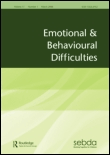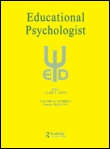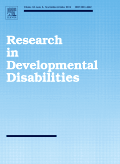
Psicologia Educativa
Scope & Guideline
Exploring Innovative Approaches in Educational Psychology
Introduction
Aims and Scopes
- Educational Psychology Research:
The journal publishes studies that explore psychological principles applied to educational settings, including topics like motivation, learning strategies, and emotional intelligence. - Assessment and Intervention Strategies:
Research on the development and evaluation of assessment tools and intervention programs aimed at addressing educational challenges, particularly in early childhood and special education. - Impact of Socio-Emotional Factors:
Exploration of how emotional well-being, resilience, and social dynamics influence academic performance and teacher-student relationships. - Cognitive Processes in Education:
Investigations into cognitive functions such as attention, memory, and executive functions, and their implications for learning and teaching methodologies. - Cross-Cultural and Contextual Studies:
Studies examining educational psychology across different cultural contexts, emphasizing the importance of socio-cultural factors in educational practices.
Trending and Emerging
- Impact of COVID-19 on Education:
Research exploring the academic and emotional challenges faced by students during and after the COVID-19 pandemic is increasingly relevant, highlighting the need for adaptive educational strategies. - Emotional Intelligence and Academic Success:
There is a growing body of literature examining the relationship between emotional intelligence, resilience, and academic performance, indicating a trend towards understanding the emotional aspects of learning. - Peer Mentoring and Support Systems:
Studies focusing on peer mentoring's effectiveness in reducing dropout rates and enhancing academic performance are emerging, reflecting a shift towards collaborative and supportive educational environments. - Diversity and Inclusion in Education:
Research addressing the needs of diverse learner populations, including those with special educational needs, is on the rise, emphasizing the importance of inclusive educational practices. - Technology in Educational Assessment:
Emerging themes include the use of technology for formative assessment and cognitive diagnosis, signaling a trend towards integrating digital tools in educational evaluation.
Declining or Waning
- Traditional Classroom Dynamics:
Research focusing solely on conventional teacher-student interactions without considering the broader socio-emotional or cognitive context has seen a decrease, as newer studies emphasize integrated approaches. - Generalized Theories of Learning:
Papers that rely on broad, non-specific theories of learning without empirical backing are less common, as the journal has shifted towards studies with robust methodological frameworks and specific educational contexts. - Universal Interventions:
There is a waning interest in one-size-fits-all intervention strategies, with a growing emphasis on tailored approaches that consider individual differences and contextual factors.
Similar Journals

REVISTA LATINOAMERICANA DE PSICOLOGIA
Innovating Research, Inspiring DiscourseREVISTA LATINOAMERICANA DE PSICOLOGIA, published by the Foundation Advancement Psychology, serves as a prominent platform for the dissemination of innovative research and critical discourse in the fields of psychology and social sciences. Established in Colombia in the early 1980s, this journal has been crucial in reflecting the diverse psychological landscapes of Latin America and beyond. With an impact factor indicating its growing influence in the field—ranking in the 3rd quartile for Psychology (miscellaneous) and the 2nd quartile for Social Sciences (miscellaneous) as of 2023—it highlights significant research contributions and promotes interdisciplinary dialogues. Notably, the journal facilitates open access to its content, fostering a wider audience reach and enabling essential knowledge sharing among researchers, practitioners, and students. For those keen on exploring contemporary psychological issues and social phenomena, REVISTA LATINOAMERICANA DE PSICOLOGIA stands as an invaluable resource, ready to inspire further investigation and academic collaboration.

EMOTIONAL AND BEHAVIOURAL DIFFICULTIES
Pioneering research for effective interventions in psychology.EMOTIONAL AND BEHAVIOURAL DIFFICULTIES is a pivotal journal in the fields of Clinical Psychology, Developmental and Educational Psychology, and Psychiatry and Mental Health, published by Routledge Journals, Taylor & Francis Ltd. With a commitment to advancing understanding and intervention strategies for emotional and behavioral challenges, this journal has been a significant resource since its inception in 1996, and it continues to publish cutting-edge research until 2024. The journal holds a respectable position, ranking in the Q3 quartile across its categories, which emphasizes its relevance and contributions within the academic community. Even without Open Access options, the journal remains essential for researchers, practitioners, and students who seek to enhance their knowledge and practices in addressing emotional and behavioral difficulties. Published in the United Kingdom, it emphasizes comprehensive research, theoretical discussions, and practical applications that are crucial for developing effective strategies in mental health and educational settings.

EUROPEAN JOURNAL OF PSYCHOLOGY OF EDUCATION
Shaping the future of education with psychological research.Welcome to the European Journal of Psychology of Education, a leading scholarly publication dedicated to advancing the fields of developmental and educational psychology. Published by Springer, this esteemed journal boasts an impressive impact factor, firmly placing it in the Q1 quartile for both Developmental and Educational Psychology as well as Education as of 2023. With a Scopus rank of #171 out of 1543 in Social Sciences Education and a #63 ranking out of 360 in Psychology, it represents a vital resource for researchers, professionals, and students seeking to explore innovative educational practices and psychological theories from a European perspective. Founded in 1986, the journal has established itself as a cornerstone of contemporary research over the years and continues to publish high-quality articles that contribute significantly to the understanding of psychological principles in educational contexts. Although it does not currently operate under an open access model, its rigorous peer-review process ensures that only the most impactful studies are included, making it essential reading for those committed to advancing educational psychology.

International Journal of Educational Psychology
Advancing the Future of Educational PsychologyInternational Journal of Educational Psychology, published by HIPATIA PRESS, is a premier platform for innovative research in the fields of educational and developmental psychology. With an impact factor reflecting a growing presence in the academic community, this Open Access journal has been delivering peer-reviewed studies since its inception in 2012, facilitating worldwide accessibility and collaboration. Based in Barcelona, Spain, this journal focuses on advancing knowledge and practice in educational psychology, providing insights for educators, researchers, and practitioners alike. As it converges through the years from 2018 to 2024, the journal proudly holds a Q3 quartile ranking in both Developmental and Educational Psychology and Education categories, highlighting its dedication to impactful scholarship. By engaging with the latest findings and fostering critical discussions, the International Journal of Educational Psychology aims to enhance educational practices and inform policy making, thus shaping the future of psychology and education.

Psychology Society & Education
Advancing Insights at the Intersection of Psychology and EducationPsychology Society & Education is a distinguished journal published by EDITORIAL UNIV CORDOBA-UCOPRESS, dedicated to exploring the intersections of psychology, education, and society. With an ISSN of 2171-2085 and an E-ISSN of 1989-709X, this Open Access journal has been providing freely accessible scholarly articles since 2009, ensuring a wide dissemination of knowledge within the academic community. Based in Spain, the journal ranks favorably in its categories, including Q3 in Clinical Psychology and Q3 in Education, illustrating its growing impact in these fields. Offering a platform for rigorous research, reviews, and discussions, Psychology Society & Education invites contributions that advance understanding of psychological principles applied within educational contexts and societal dynamics. Its role in bridging research with practical applications makes it an essential resource for researchers, professionals, and students aiming to contribute to the evolving discourse surrounding psychology and education.

EDUCATIONAL PSYCHOLOGIST
Shaping the Future of Education with Psychological ExpertiseEDUCATIONAL PSYCHOLOGIST, a leading journal published by Routledge Journals, Taylor & Francis Ltd, stands at the forefront of developmental and educational psychology. With an impressive impact factor and recognized as a Q1 journal in its field, it ranks #3 out of 360 in the Scopus category, placing it in the 99th percentile of journal performance. Since its inception in 1963, this esteemed publication has provided a platform for researchers, educators, and practitioners to share innovative studies, theoretical advancements, and practical applications focusing on learning processes and psychological development within educational contexts. Although it does not offer open access, the journal remains a vital resource for those looking to deepen their understanding of educational psychology and its impact on teaching and learning methodologies. Based in the United States, EDUCATIONAL PSYCHOLOGIST is essential reading for anyone committed to advancing knowledge in the field.

Research in Developmental Disabilities
Fostering multidisciplinary dialogue for enhanced outcomes.Research in Developmental Disabilities is a leading journal published by PERGAMON-ELSEVIER SCIENCE LTD, dedicated to advancing the field of developmental disabilities through rigorous research and evidence-based insights. Since its inception in 1987 and continuing through 2024, the journal has made significant contributions to the understanding of developmental and educational psychology, earning a commendable impact factor and ranking in the Q2 quartile in both Clinical Psychology and Developmental and Educational Psychology categories for 2023. The journal, with ISSN 0891-4222 and E-ISSN 1873-3379, features original research articles, reviews, and practical applications aimed at professionals, researchers, and students in the field, fostering a multidisciplinary dialogue around theories, interventions, and policies that shape the lives of individuals with developmental disabilities. While currently not an open access journal, it offers a crucial platform for disseminating knowledge and sparking innovative approaches to enhance educational and psychological outcomes for affected populations. With its roots in the United States and a global influence, Research in Developmental Disabilities is vital for those committed to understanding and improving the developmental trajectories of individuals facing these unique challenges.

PSYCHOLOGIE IN ERZIEHUNG UND UNTERRICHT
Transforming education with innovative psychological research.PSYCHOLOGIE IN ERZIEHUNG UND UNTERRICHT, published by ERNST REINHARDT GMBH CO VERLAG, serves as a pivotal platform for research in the fields of Developmental and Educational Psychology. Since its inception, this esteemed journal has focused on disseminating groundbreaking insights and innovative practices from 1996 to the present, with expectations to continue through 2024. Despite its current ranking of Q4 in category quartiles and a Scopus rank of #309 out of 360, the journal remains a crucial resource for scholars, educators, and practitioners seeking to enhance their understanding of psychological principles within educational contexts. Situated in the vibrant academic landscape of Germany, the journal emphasizes both theoretical and practical perspectives, motivating interdisciplinary discussions that are vital in addressing contemporary challenges in education and human development. As the journal continues to evolve, it invites contributions that explore emerging trends, providing a rich source of information for both researchers and professionals dedicated to improving educational outcomes through psychological insights.

PSICOTHEMA
Connecting Minds Through Open Access ScholarshipPSICOTHEMA is a premier open-access journal dedicated to the field of psychology, published by the COLEGIO OFICIAL DE PSICOLOGOS DE ASTURIAS in Spain. With an impressive impact factor and a distinguished presence in the academic community, PSICOTHEMA has established itself as a vital platform for disseminating innovative research and insights in psychology since its inception in 1989. The journal embraces a broad scope, covering diverse topics within psychology and ranks within the top quartile (Q1) in the 'Miscellaneous Psychology' category as of 2023, making it a key resource for researchers and practitioners alike. With a current Scopus rank of #32 out of 216 in General Psychology and an 85th percentile ranking, it underscores PSICOTHEMA’s commitment to quality and relevance. Researchers, professionals, and students are encouraged to explore its extensive repository of articles, which promotes both theoretical knowledge and practical applications in the ever-evolving landscape of psychological science.

CONTEMPORARY EDUCATIONAL PSYCHOLOGY
Decoding the Science of Learning and DevelopmentCONTEMPORARY EDUCATIONAL PSYCHOLOGY, published by Academic Press Inc. Elsevier Science, stands as a leading journal in the fields of developmental and educational psychology. With an impressive impact factor and ranked in the Q1 category for both Developmental and Educational Psychology and Education, it is recognized as a top resource for researchers and professionals seeking to explore the complexities of learning, development, and educational practices. The journal has been disseminating groundbreaking research since 1976 and continues to be relevant through 2024, showcasing innovative studies that inform educational theory and practice. Although the journal operates under a subscription model, it provides unparalleled insights and comprehensive reviews that cater to a diverse audience, including researchers, educators, and students. The rigorous peer-review process guarantees the high quality of published work, while its Scopus rankings affirm its significant contribution to the academic community, with standout positions in both the fields of social sciences education and developmental psychology. For those committed to advancing the intersection of psychology and education, CONTEMPORARY EDUCATIONAL PSYCHOLOGY is an indispensable scholarly resource.